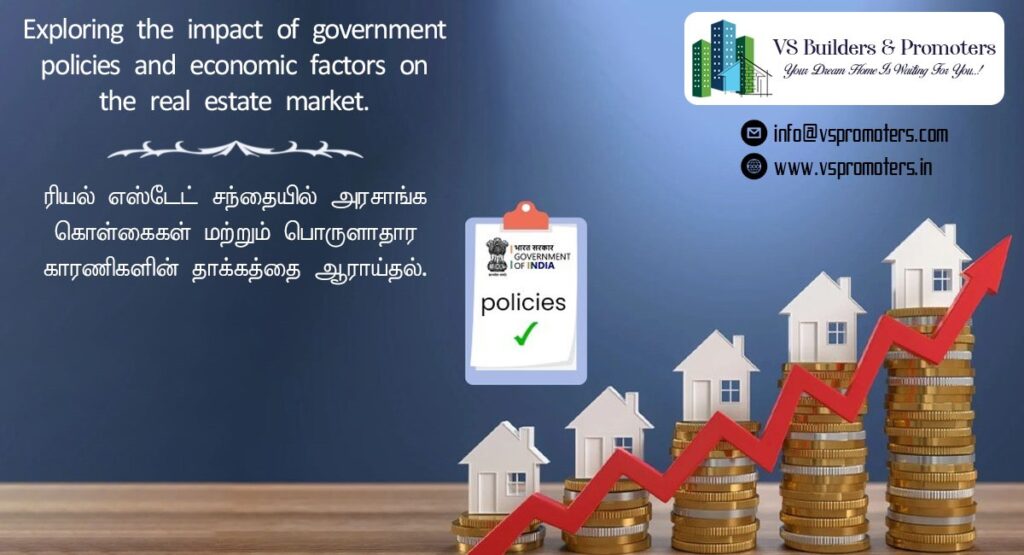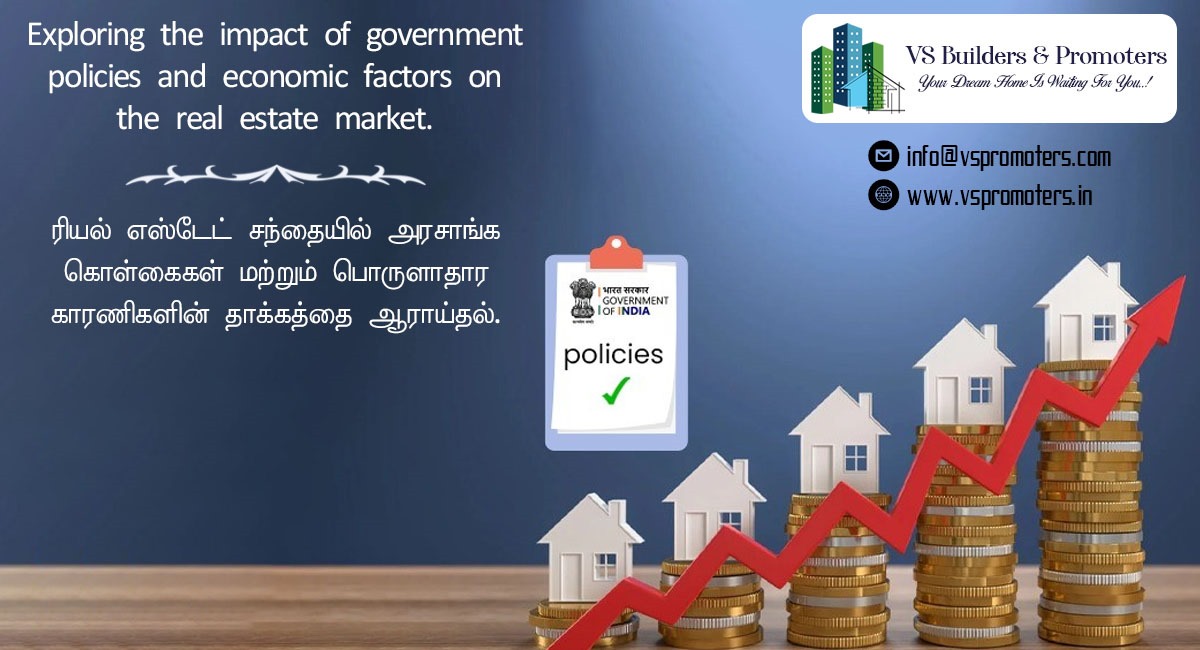
The real estate market, Government policies, and economic factors play a significant role in shaping its landscape, influencing everything from property prices to investment decisions. Let’s get deeper into this dynamic interplay:
Government Policies:
Monetary Policy: Central banks manipulate interest rates to influence borrowing costs and economic activity. Lower interest rates make mortgages more affordable, boosting demand and potentially inflating prices. Conversely, higher rates can dampen demand and cool the market.
Fiscal Policy: Government spending programs and tax policies can have direct and indirect impacts on the real estate market. Infrastructure investments can increase property values in surrounding areas, while tax breaks for homeowners can stimulate demand.
Regulatory Frameworks: Zoning regulations, building codes, and environmental restrictions can influence the availability and cost of housing. Stricter regulations may limit supply and push prices up, while relaxed regulations can spur development but raise concerns about sustainability and quality.
Housing Policies: Specific policies like rent control, subsidies for first-time buyers, and eviction laws can directly impact affordability and accessibility of housing, particularly for low-income households.
Economic Factors:
Economic Growth: A strong economy with rising employment and wages generally leads to increased demand for housing and higher property values. Conversely, economic downturns can weaken demand and lead to price corrections.
Inflation: Rising inflation erodes affordability and can discourage investment in real estate. However, it can also lead to nominal price increases in the short term.
Interest Rates: As mentioned before, interest rates play a crucial role in shaping mortgage affordability and demand. Additionally, they influence investment decisions, as lower rates may make other assets like bonds less attractive.
Demographic Shifts: Population growth, aging populations, and migration patterns can all impact the demand for different types of housing in specific locations. For instance, an aging population may increase demand for retirement communities or smaller dwellings.
The Interplay:
It’s not a simple cause-and-effect relationship. Government policies and economic factors interact and influence each other in complex ways. For example, low interest rates set by a central bank might stimulate economic growth, further increasing demand for housing and potentially leading the government to implement cooling measures like stricter lending regulations.
The Real World:
Understanding this interplay is crucial for various stakeholders. Homebuyers should consider how economic forecasts and potential policy changes might impact their investment. Investors need to analyze how government incentives and regulations might affect their returns. Policymakers themselves must design policies that consider both short-term economic goals and long-term sustainability of the real estate market.
Conclusion:
In conclusion, the real estate market is a dynamic tapestry woven from the threads of government policies and economic factors. Understanding their intricate interplay is vital for navigating this complex landscape, whether you’re a buyer, seller, investor, or policymaker.
Let us guide you through the journey of real estate purchasing with ease. With 10 years of experience in real estate asset acquisition, we can help you purchase the perfect apartment, land, villa, or commercial property. Don’t let the stress of buying property hold you back – trust VS Promoters to make the process hassle-free. With VS promoters as your trusted partner, you can confidently embark on this exciting path towards realizing your dreams of real estate.
For More Details:
Contact: +91 7094434780
Mail: info@vspromoters.com
Visit: www.vspromoters.in


